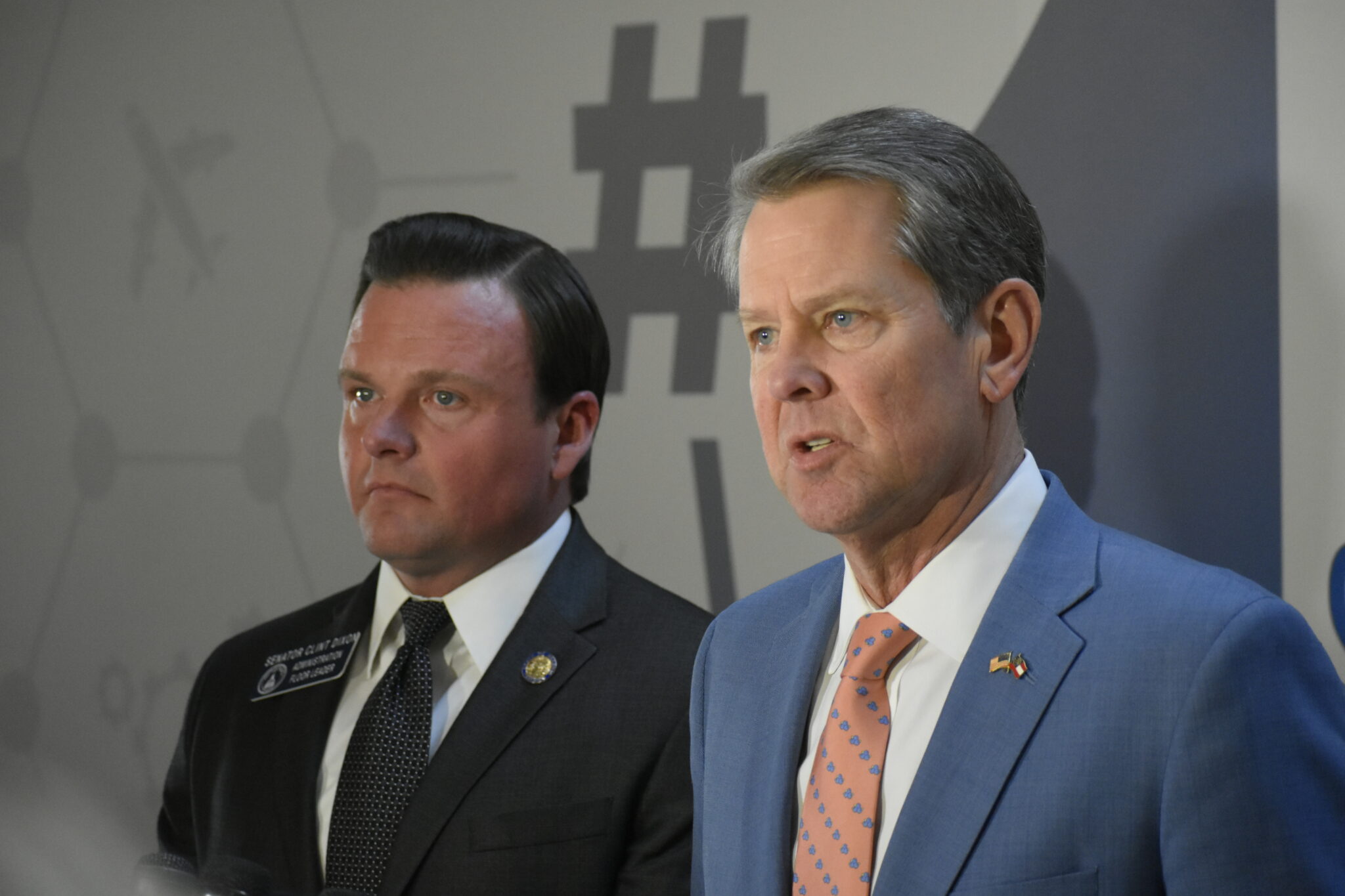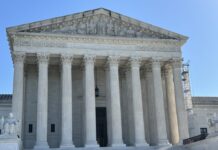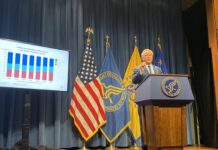
(GA Recorder) — Georgia school children could go mask-free in the classroom, at least until next summer, if a bill just rolled out by Gov. Brian Kemp passes the Legislature.
The Unmask Georgia Students Act, introduced Monday by Buford Republican Sen. Clint Dixon, bans school boards, superintendents, administrators and teachers from requiring masks on school property unless there is a way for parents to opt out. The bill applies to charter schools as well as public schools.
“We’ve been in this pandemic for well over two years now, going into our third year, we’ve got to continue to move back toward more normal operations,” Kemp said. “We’re trusting our parents every day whether to send their kids to school or not, if they’re not feeling well, if they have a fever, we can certainly do that for masks at this point in the pandemic.”
Georgia has 181 school districts, and Kemp said about 45 of them currently require masks.
If it passes the House and the Senate, both controlled by Kemp’s fellow Republicans, it will take effect immediately upon receiving Kemp’s signature. It is set to expire on June 30, 2023.
“We felt like having a short window,” Kemp said. “We’re not obviously going to deal with a global pandemic the rest of our lives. As you all know, I’ve been a local control governor, working with the school systems to help get kids into classrooms, I have great respect for that, but I also believe that when you have schools out there that have a mask mandate, then allow visitors to come in unmasked, what is the point?”
That appeared to be a thinly veiled barb at Stacey Abrams, the presumed Democratic nominee for governor of Georgia. Abrams stirred controversy when she appeared as the sole mask-less person in photos during an event where she read to children at a Decatur elementary school. Kemp’s other political rival, former Sen. David Perdue, has also attacked Kemp over masks, last week releasing an ad accusing him of folding to radical Democrats and allowing them to set their own mask rules.
“It’s a shame that it takes political pressure to get our Governor to speak up and act on anything,” Perdue said in a tweet Monday. “He should have done this months ago. This is nothing but a political ploy because he’s worried about this election.”
Kemp said the bill is not targeted at any individual but intended to relieve frustrated parents and students.
“We should trust the parents, their medical providers, with the health of our children at this point in the pandemic,” Kemp said. “This is something that I’ve been very patient on, but it’s gone on way, way too long.”
Other Republican governors’ patience has also worn thin. According to the Center for Dignity in Healthcare for People with Disabilities, seven states currently ban school mask mandates: Arizona, Florida, Montana, Oklahoma, South Carolina, Texas and Utah.
Last year, Kemp filed an executive order prohibiting local governments from instituting mask mandates, but he has largely been content to let local school boards set their own rules. Last May, he said on a Fox News interview that he would sign an executive order banning mask mandates, but the actual order only prevented them from justifying mandates on the state of emergency declared by his office.
The latest proposed step goes further, but not as far as some other states. In Florida, schools that defy the state’s rules could risk a portion of their funding, but Kemp’s bill does not spell out consequences for schools or districts that require kids to mask up anyway.
Still, some public health experts worry the proposed law will contribute to the spread of the disease among children and the adults in their lives.
Young people typically suffer only mild symptoms from COVID-19, but in rare cases, they can develop serious illness. And while the omicron variant usually causes less severe symptoms than previous strains, it can still be deadly.
“It’s particularly troubling that not not only our governor, but other governors around the country, are in a hurry to take away mask mandates in schools at a time when we’re in a much better place in the omicron surge, but we’re but we’re clearly not to a point where transmission levels are low,” said Dr. Harry J. Heiman, public health professor at Georgia State University. “We’re still having high transmission levels of omicron across the country, including virtually the entire state of Georgia. The CDC is still recommending universal indoor masking in school settings, and I think mask mandates are one of the most critical tools that we have to protect children, and to keep them in school.”
Heiman said Georgia’s low vaccination rate among school-age children — 16.7% with at least one dose in January compared with 28.1% for the nation, according to the Kaiser Family Foundation — is particularly concerning. He said he worries the legislation will hamstring schools from making decisions based on local conditions.
“If you look at, for example, Atlanta Public Schools, where they’ve had a very consistent and, I believe, evidence-based policy, which says that when transmission rates get down to the moderate range, so they set a metric of 50 or less cases per 100,000, that will be the time that will start rolling back mask mandates. That’s based on the science, that’s based on the most current public health recommendations. And that, to me, makes a lot of sense. But to pass legislation that takes away that ability from local school districts to make decisions based on the reality on the ground in their community, I think is both dangerous and ill-advised.”
Georgia law typically gives deference to local school boards to make their own decisions, but Kemp said he’s confident his plan will get ultimate approval in the courts.
“We anticipate legal action with all kinds of pieces of legislation down here,” he said. “I would remind you that we have had the Biden Justice Department suing us over the Elections Integrity Act, where it’s easy to vote and hard to cheat. That’s not how we legislate. We’re trying to do the right thing for our parents and for our children. It’s past time to do this.”







